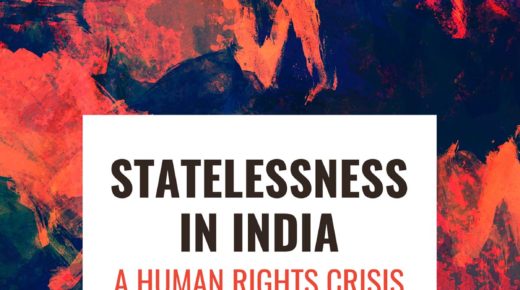Lectures & Panels Statelessness in India: A Human Rights Crisis

Aman Wadud and Yee Htun discuss citizenship verification in India and its effects on the nation’s Muslim minority.
Event Overview
On August 31, 2019, the northeast state of Assam in India released a list of citizens and a list of 1.9 million labelled as “foreigners” or “illegal migrants” after a harrowing citizenship verification exercise across the state. To be counted as a “citizen” on the National Register of Citizens (NRC), every child and adult in Assam had to prove their descent from a person born in Assam prior to March 24, 1971 with official documents. Those who didn’t make the cut have had their citizenship status under threat, setting the stage for the largest ever statelessness problem that the world has witnessed. Government statistics reveal that around 1,000 people are being held in detention camps and at least twenty nine (29) people have died in these camps. Families have been separated and the ultimate fate of those deemed “illegal” under the law is unclear.
The ruling Modi government has promised to conduct a similar citizenship verification exercise across the country. Combined with a new amendment to the Citizenship Act that excludes Muslims from seeking citizenship on the grounds of religious persecution, this exercise could render millions of people stateless and could also have the effect of disenfranchising the Muslim minority in India.
Join Aman Wadud, a human rights lawyer from Assam who has been fighting for the disenfranchised and the excluded, in a discussion of this unprecedented humanitarian crisis in India. Yee Htun, an expert on Myanmar and a clinical faculty member at the Human Rights Program will moderate the conversation and discuss how India’s present actions track the Myanmar’s government oppression of the Rohingya community in the Rakhine state of Myanmar.
Organized by the Program on Law and Society in the Muslim World and HLS Advocates for Human Rights.